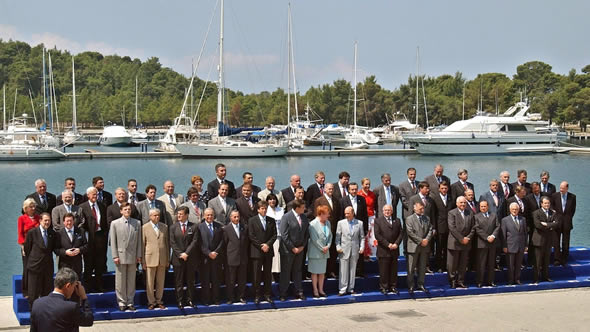Brussels – ESI participates in FES workshop "Thessaloniki II"

ESI Senior Analyst Alexandra Stiglmayer participated in a workshop themed "Thessaloniki II", which was organised by the German Friedrich-Ebert-Stiftung (FES) in Brussels.
The idea of this project is to combine the forces of a group of experts from Western Balkans countries, EU member states and think-tanks in order to review the current EU enlargement framework and to brainstorm about possible ways how to regain a momentum for enlargement and accession. The Friedrich-Ebert-Stiftung plans to publish a brochure with the recommendations and to organise events in order to advocate them. The workshop was preceded by a dinner at which Stefano Sannino, the European Commission's Director-General for Enlargement, outlined the current situation.
Alexandra's main points were:
- The EU should try to get all the Western Balkan countries to the negotiation stage as soon as possible. The negotiations may then last many years, until all conditions are fulfilled, but they are more concrete and far more effective than to keep the countries in the waiting room for too long. The regatta principle would also be very useful in the Balkans since it would create positive competition. In order to fully capitalise on such as approach, it would be necessary to make the accession process more transparent and comparable.
- In the meantime, the EU should offer the countries the opportunity to implement certain parts on the acquis regardless where they stand in the enlargement process, like it was done for visa-free travel. There should be a reward attached to it, the criteria (benchmarks) should be listed in a roadmap-type document, there should be regular reviews, financial and technical support, and all documents should be public so that civil society can follow progress and make comparisons.
- Serbian and Macedonian officials were allowed to participate in the screening for chapters 23 and 24 for Montenegro, which was useful. When the next country opens negotiations, the remaining countries should be invited to all the explanatory screenings (when the European Commission explains the acquis).
